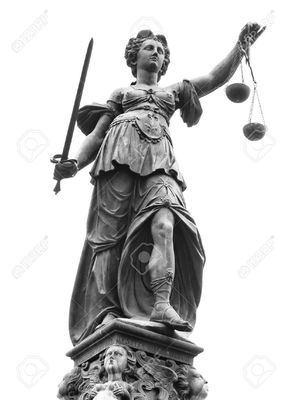
By Greg Eastman, Vandy M. Howell, and Maria Salgado, Cornerstone Research
In high-stakes litigation, expert witness testimony is often a necessary and critical part of litigation strategy. Experts can offer testimony to address unique questions or facts that are central to liability issues. They are also almost universally used when it comes to quantifying damages. Because expert witness testimony can be such an important factor, there can be much at stake for litigators in the process of finding and selecting an expert. Clients, too, have recognized the importance of choosing the expert witness best suited for the case, and the expert selection process has increasingly become a joint enterprise between outside litigators and their in-house counterparts.
Therefore, both in-house counsel and their outside attorneys should be informed about the best practices in finding and selecting expert witnesses. In this article, we discuss the various roles that experts can play in litigation, and some of the key issues one should consider when searching for the most effective expert, a decision that ultimately can have a significant impact on settlement negotiations and trial results.
Determining Whether You Need an Expert,
and if So, What Kind
Determining if an expert is needed, and if so, what kind, are the two questions that attorneys must address before beginning a search for an expert witness. An expert will typically be needed when the facts and issues of the case are not easily comprehensible, when the facts of the case require the trier of fact to reach an opinion or conclusion that is not easily attainable, and when the case issues are sophisticated and the judge is not well-versed in the relevant concepts.
Experts play a wide variety of roles in different types of cases, and one needs to consider the specific goals for the expert testimony before starting a search. In some cases, the key liability questions revolve around a particular science or study. For example, in a monopolization case, the key liability questions might be to define the scope of the economic market and to assess whether certain behaviors in the marketplace were anticompetitive. While the law provides some structure for considering these questions, they are fundamentally economic questions. Testimony from an economist can lay the framework that should be used to assess the question based on the facts of the case.
In another example, a key liability hurdle in a patent case is whether the technology at issue is actually infringing. Technical expertise may be necessary to determine how to assess and answer this question. In these situations, experts provide something different than fact witnesses for a variety of reasons. First, experts are allowed to rely on hearsay, generally distinguishing them from fact witnesses, and allowing them to consider large amounts of evidence and conduct appropriate research. Second, in doing so, the experts are in the specific role of laying a framework based on their experience and expertise, and then assessing and interpreting broad types of relevant information and facts in the case (e.g., data, deposition testimony, internal documents, etc.) using that framework. This provides the ultimate fact finders with a summary of the relevant information and guidance as to how to assess and interpret the information in the case, as well as what the facts imply given this assessment. When an expert is in this role, testifying on the central issue in the case, the testimony can cover much ground and the expert can be on the stand for extended periods of time.
Frequently experts are essential to a case in a more discrete role: that of building the fact basis necessary to effectively try or defend the case. This happens when a critical fact to the liability case is not possible to discern with existing information or without expert interpretation. For example, in a trademark infringement case, one central factual question may be whether or not a company's trademark caused confusion among consumers. Marketing or survey experts are often retained to conduct surveys to collect the data necessary to address this question. These surveys would be developed following the rules of survey science in order to be reliable, but are also designed to answer the specific question at hand and provide these facts to the judge or jury.
In securities fraud cases, a key fact can be whether or not allegedly withheld information was the cause of a significant change in a company's stock price. A financial or statistical expert can analyze stock prices, economic conditions, and other data and industry events, and apply a formal statistical test to answer this question, consistent with the methodologies used in their field. In these situations, the expert may be providing his or her findings of critical facts for the jury's consideration. These expert roles can be narrower in scope, but no less critical. In some cases, multiple experts are hired, providing different key opinions and an ultimate assessment of the facts.
A third role that expert witnesses play—one of the most commonly used in litigation—is that of the damages expert. The extent of harm that can be attributed to an alleged wrongful act is almost always subject to dispute, and experts can be essential in analyzing that critical question. Damages theories can be challenging to bring to the judge or jury in the absence of an expert witness, as they more often than not require some estimation of a world “but for” the allegedly wrongful behavior. In that “but for” world, would plaintiffs have been better off? If so, by how much?
In cases where liability has already been established, experts may be used only in the damages phase, as damages experts quantify the impact of the liability. They frequently have economic, financial, accounting, or statistical expertise, as well as experience in the relevant industry. It is sometimes risky to forgo using an expert, especially if the other side has one. As trial lawyers know, when the other side has presented expert testimony, you run the risk—if not the likelihood—that the trier of fact will accept that expert's findings, simply because you have not offered an alternative.
While this list is not exhaustive, a final and important expert role is that of a consulting expert. Testifying experts, as described above, are retained to offer expert testimony that will be used in the litigation and considered by the fact finder. Parties can also engage consulting experts who play a different role. Consulting experts do not testify and their work on a case is not discoverable. Consulting experts can help an attorney consider different economic, financial, or technical complexities of a case, as well as assist in fact development by, for instance, suggesting documents or information to request, deposition questions to ask, and data to use, or by spotting important factual issues.
Parties can use consulting experts even where they have already engaged a testifying expert on the same issue, and there is often value in doing so. For example, consulting experts can perform preliminary analyses to assess the viability of different strategic directions for a case, without the worry of discoverability. They can also assist in preparing the testifying expert for deposition and trial and provide feedback to counsel on how the testifying expert can be most valuable to the case.
Engage Experts Early
Once the decision is made to use an expert, counsel must next consider when to engage the expert. With few exceptions, it should be done as early as possible for the following reasons:
• It increases the chance that your client will be able to retain the expert best suited for the case and that your chosen expert will not be prevented from representing your side because of a conflict of interest.
• Expert advice can be critical in making the most of fact discovery, as experts can be invaluable in framing discovery requests, identifying fruitful issues to investigate in depositions, and even identifying the right personnel to depose.
• It allows counsel to use the expert (sometimes in the consulting role) to add input on often-valuable early-stage questions, such as whether or not the value of the case is enough to make it worth litigating, potential settlement value, identification of key technical, economic, or financial concepts or issues, and whether the expert's findings and opinions have implications for other parts of counsel's legal strategy.
• Early participation helps the expert to develop the most effective opinion, as he or she will benefit from sufficient time to do appropriate research as well as the ability to ensure that the data and information central to the expert's opinion can be collected and made available for analysis.
Finding an Expert
Generally speaking, most expert witnesses fall into one of three categories:
• Academics with expertise and experience in a particular methodological approach (e.g., statistical analysis, valuation, assessing competition, etc.), or in the workings of a particular industry (e.g., the economics of the automobile industry).
• Practitioners with extensive experience in a particular industry (e.g., an experienced auditor who can testify about standard auditing practices or someone who has been on many corporate boards and can discuss the common ways that they operate). These experts are often self-employed and perform expert witness work on an ad hoc basis.
• Experts who work at expert consulting firms, with careers devoted to providing expert testimony in their areas of expertise (whether that be technical, statistical, or focused on particular industries).
The process of finding the expert best suited for a case may seem daunting, but by consulting certain sources, litigation teams can often identify a number of candidates. First, it is always advisable for attorneys to consider their own networks: individuals they have experience working with or otherwise know personally. Trusted colleagues with relevant experience can also be helpful sources of referrals.
The client's network should also be leveraged in identifying experts—another reason to have the client involved in the expert selection process. A client may have a roster of experts they have worked with successfully in other litigation. While litigators should weigh the possibility that an expert frequently used by a client could be perceived as less credible by a trier of fact (who may not view the expert as unbiased), such an expert may also bring benefits in terms of built-up knowledge and familiarity with relevant technology or other facts.
Well-credentialed experts and leading academics in the relevant issue area can often be found by searching publications, electronic CVs, academic citations, and conference presentations. Experts can be cited by judges or in other legal pleadings and disclosed experts in those cases can be considered as possibilities.
In addition to the above, searches performed by expert consulting firms are often a valuable way to discover the expert witness best suited for a case. Expert witness consultancies regularly conduct expert witness searches, generally at no charge to attorneys. These services take advantage of the national reach and breadth of expert networks that the consultants have built up over time.
The benefits of conferring with a consultant go beyond identifying an expert in a particular area that an attorney believes is necessary to the case. With their extensive research and litigation experience, consultants can also help to spot issues and areas of potential expert assistance that the attorney may not have previously considered. This can be especially true if the industry or legal issues are new to counsel. For example, a litigator could start an expert search for a consumer fraud case wanting a “statistical expert” to assess damages. Consultants who specialize in this area might help the litigator to understand that a key factual issue in calculating damages (e.g., the degree to which consumers changed their behavior due to the alleged fraud) is not possible to assess through existing data, and that a marketing survey expert is better suited to assess the question. Consultancies have a motivation to aid counsel in identifying the experts best suited for the case, as most will make themselves available to support the expert they have identified. Attorneys should also be aware that they can use more than one consulting firm for this search in order to find the best set of options, and ultimately the most appropriate experts, for their case.
Selecting an Expert
Once potential experts have been identified, there are still several factors to consider before retaining them.
Ensure No Direct Conflicts
You will need to reveal the party you are representing to allow an upfront identification of any direct conflicts (e.g., the expert is working for the other side in the same matter or in other related litigation). There may also be conflicts in terms of the expert's availability and the case calendar. A discussion to identify direct conflicts should happen prior to any detailed or confidential discussion of your case issues.
Consider Past Testifying Experience
Request a list of all parties, cases, and issues on which your expert candidate has testified to ensure there are no potential issues with regard to the present case. Much of this information should be immediately available, as federal rules require experts to identify all cases in which they have testified in the preceding four years. Reviewing any previously filed expert reports, if available, as well as deposition transcripts and trial testimony, is important, and many resources—such as PACER, or Bloomberg Law databases—can provide at least some of that information. Here, counsel should weigh the results of the expert's previous cases, any exclusions of the expert's testimony, and any credibility-damaging aspect of his or her experience (such as only representing one party).
Consider How the Expert Is Compensated
If the expert is employed by another entity, counsel should also clarify the particulars of their compensation. For example, some experts have financial arrangements with the consulting firms that support or employ them. It is important to understand these relationships up front so that you are not surprised later on if they are investigated in the deposition context or used to try to establish bias.
Consider the Expert's Publications in the Academic or Professional Arena
Assess the expert's CV for past publications. You can ask the expert for guidance on publications most relevant to the case issues. Review relevant papers to assess whether there are any helpful or problematic positions that have been taken in the expert's prior research.
Conduct a Background Check
Vetting the candidate can prevent damaging embarrassments at trial. While it may seem that a university professor is competent to testify, it can be surprising what is sometimes found in the public arena. For example, an expert opinion was excluded through a Daubert motion due, in part, to the expert's blog writings, which verified that the expert was offering personal opinion rather than expert analysis. Other examples include statements made by experts in blogs or in press articles that were considered at odds with their expert opinions that significantly damaged their credibility. In deposition, experts have been found to be ex-felons, or not to have completed the PhDs claimed on their CVs. Public sources like social media profiles, blogs, and other writings are a first step, and counsel should at minimum also independently verify the credentials in the expert's CV.
Check Several References
Getting feedback from other attorneys who have worked with the expert before can be very helpful, and it is advisable to call at least one attorney who has previously worked with the expert but does not appear on the expert's list of references.
Interview the Expert Face to Face
Once the search has been narrowed, counsel should always interview experts in person or via video before engaging them, if for no other reason than to observe the expert's demeanor. Interviews allow counsel to have a back-and-forth discussion about strategic case issues, and to learn how the expert thinks and expresses opinions. Also, you can more deeply explore the relevance of the expert's prior experiences to the case at hand. While it can seem a good sign if an expert is enthusiastic about the merits of your side (as opposed to someone who is non-committal or pessimistic), it is also important to remember that for an expert to be effective, he or she must be a critical thinker and one who can fully understand the challenges in your case. The research has not yet been done, so an expert who asks important critical questions is starting in the right place. Note that, in general, a narrower expert opinion that is squarely based on facts and analysis would be expected to be more effective than an advocacy piece that will not withstand criticism.
Clarify How the Research Will Get Done
Frequently experts and consulting firms are hired together. Consultants who will work with the expert might attend the expert interview and help describe to counsel how they would approach the case. But if not, the interview is the right time to clarify who will be supporting the expert, if anyone. Very frequently the testifying expert does not have the time or bandwidth to conduct all the research. Working with others can lead to a better researched and supported opinion, and can also lead to cost savings (if those supporting the expert bill at a lower rate than the expert). It must be kept in mind, however, that the qualifications of those supporting the expert, or lack thereof, will ultimately reflect on the expert's work. For example, in one deposition, questioning revealed that an expert's damages model had been worked on by his daughter at home—a fact that damaged the credibility of the evidence.
Costs
Cost is an important consideration when choosing an expert, but in complex litigation it can sometimes be difficult to predict. The expert's billing rate, and the billing rate of those that will support the expert in the litigation, should be easy to obtain. More challenging may be obtaining a clear sense of the time an expert and his or her team will require to provide the analysis necessary to create an expert report, testify at deposition and trial, and perform other essential activities. Like legal work, an expert's focus and assignment can change over time, and can often involve more complications than originally anticipated. A broad cost range can and should be established upfront. This can be guided by known factors including the type of case, the role and scope of the expert testimony, how data-intensive the work will be, etc. Most experts and consulting firms can give cost estimates by looking at the range of billings on past casework similar to the matter at hand.
Attorneys should view cost estimates from potential experts critically and feel comfortable questioning the assumptions. Higher-than-expected budgets may mean that the expert and firm are less efficient, or alternatively, that they have identified some key analyses not considered by others but that are costly to perform, or that they are simply trying to offer a budget that will avoid any surprises. Lower-than-expected budgets may mean that the expert and firm do not understand the scope of what is being asked and may provide lower quality work, or alternatively, that they are more efficient, experienced, cost-effective, and innovative than others. Selecting the expert best suited for your matter could necessitate identifying answers to these questions, and it is appropriate to get clarity on the reasons for both low and high estimates in order to make the best decision.
It is also useful to establish up front how costs and budget will be managed as the case evolves. For example, while it is valuable to retain an expert early, attorneys can set parameters as to when an expert can bill and how much (e.g., not when a dispositive motion is pending). If budget constraints are severe, attorneys can explore changing the scope of the expert's role—for example, by having an analysis be more conceptual and less empirical. And in what may be the most effective and realistic method of controlling expert costs, counsel can request regular budget updates from the expert and the team and communicate about their expectations going forward. The approach for providing budget updates should be defined in advance, as well as the type of communications that will happen if it appears that the expert work will be more costly than originally anticipated.
In sum, expert witness testimony can be a critical part of litigation strategy, and it is important to know when experts are most valuable, as well as best practices in how to find and select them. As discussed above, the process of looking for the most effective expert involves deciding what kind of expert is needed (if any), determining the appropriate time to engage the expert in the litigation (preferably early), using one or more sources to identify potential experts, choosing from the candidates that were identified, and considering the budget for the expert. The process is important, as the decision can ultimately have a significant impact on settlement negotiations and trial results.
The views expressed in this article are solely those of the authors, who are responsible for the content, and do not necessarily represent the views of Cornerstone Research.
Greg Eastman and Vandy M. Howell are vice presidents, and Maria Salgado is a senior manager, of Cornerstone Research, which provides economic and financial analysis to attorneys in all phases of commercial litigation and regulatory proceedings.
Eastman has directed a number of large case teams with multiple experts, and can be reached at geastman@cornerstone.com. Howell has extensive experience in class certification, and can be contacted atmailto:vhowell@cornerstone.com. Salgado is experienced in complex business litigation, and can be reached at msalgado@cornerstone.com.
©2014 The Bureau of National Affairs, Inc. All rights reserved. Bloomberg Law Reports ® is a registered trademark and service mark of The Bureau of National Affairs, Inc.
LINK TO ORIGINAL ARTICLE
http://www.bna.com/a-primer-on-when-to-use-expert-witnesses-and-how-to-find-them/
Disclaimer
This document and any discussions set forth herein are for informational purposes only, and should not be construed as legal advice, which has to be addressed to particular facts and circumstances involved in any given situation. Review or use of the document and any discussions does not create an attorney-client relationship with the author or publisher. To the extent that this document may contain suggested provisions, they will require modification to suit a particular transaction, jurisdiction or situation. Please consult with an attorney with the appropriate level of experience if you have any questions. Any tax information contained in the document or discussions is not intended to be used, and cannot be used, for purposes of avoiding penalties imposed under the United States Internal Revenue Code. Any opinions expressed are those of the author. The Bureau of National Affairs, Inc. and its affiliated entities do not take responsibility for the content in this document or discussions and do not make any representation or warranty as to their completeness or accuracy.


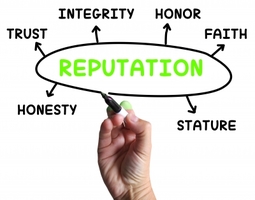
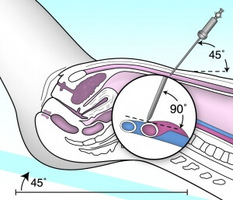
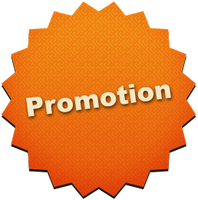
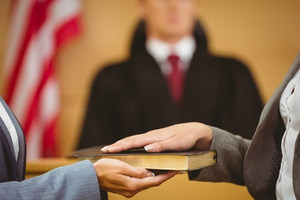
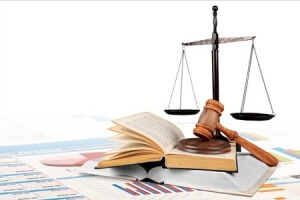
Comments